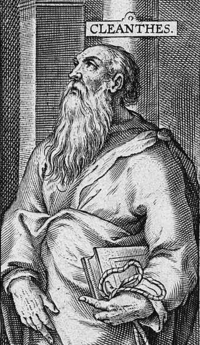Reference




OpenAI's Answer
Scholars have explored various ways in which Egyptian culture may have influenced Heraclitus, one of the Pre-Socratic philosophers known for his ideas on change, the unity of opposites, and the concept of the Logos. Here are several insights and interpretations from different sources:
-
Maat and Cosmic Order: Some scholars suggest that Heraclitus' concept of the Logos (which can be understood as the rational order of the cosmos) might have been inspired by the Egyptian idea of Maat, the principle of truth, balance, order, law, morality, and justice (Quora).
-
Integration with Greek Thought: The contributions of Ancient Egyptian civilization to Greek philosophy are significant, with the Greeks often tracing many of their philosophical ideas back to Egyptian traditions. This includes concepts related to myth-making, justice, and cosmic balance (Sofiatopia).
-
Myth and Rationality: The Greco-Egyptian origins of Western myths and philosophy indicate that the Egyptians used myths and rational thought as coexisting ways to explain the world. This duality of myth and reason is reflected in Heraclitus' own philosophical approach, which combines mystical elements with logical inquiry (PhilArchive).
-
Stolen Legacy: The idea that Greek philosophy, including the teachings of Heraclitus, could be traced back to Egyptian origins is also presented in various scholarly works. These works argue that many philosophical doctrines attributed to the Greeks were influenced or directly derived from earlier Egyptian thoughts (PhilArchive).
-
Ethical and Political Implications: The ethical and political dimensions of Heraclitus' fragments have sometimes been explored through the lens of Egyptian philosophical influence, noting how certain ideas about justice and order might parallel Maat (Wayne State University Digital Commons).
Overall, the exploration of Heraclitus' connections to Egyptian culture highlights a rich tapestry of philosophical cross-pollination, where ideas of cosmic order, justice, rationality, and myth were potentially influenced by the grand and enduring civilization of Ancient Egypt.
Follow Up
Related
Lý do chọn đề tài: chứng minh" nhận định hiệu quả kinh doanh bán hàng chỉ thực sự hiệu quả nếu tạo r
de este audio quiero que me hagas un documentó de unas 9 paginas con las indicaciones que dice y el
que es heavy metal
What cultural events and institutions can be found in Maxatawny Township?
What historical event does Neda Ulaby reference in the NPR piece from May 2008?